Everything had been going so well.
By the early 1970s, the Jesus Movement was sparking a nationwide revival after the assassinations and protests and sex and drugs of the late 1960s.
“Evangelicals suddenly find themselves number one on the North American religious scene,” Christianity Today reported in October 1976, the year Gallup and Newsweek deemed “The Year of the Evangelical.” So new was the term that David Wells and John Woodbridge edited a book titled The Evangelicals: What They Believe, Who They Are, Where They Are Changing.
At a conference of the National Association of Evangelicals and National Religious Broadcasters in early 1981, “speaker after speaker portrayed the ’80s as ‘the decade of the evangelicals,’ a boom time for conservatives generally and particularly with those concerned with a return to traditional morality,” The Washington Post reported.
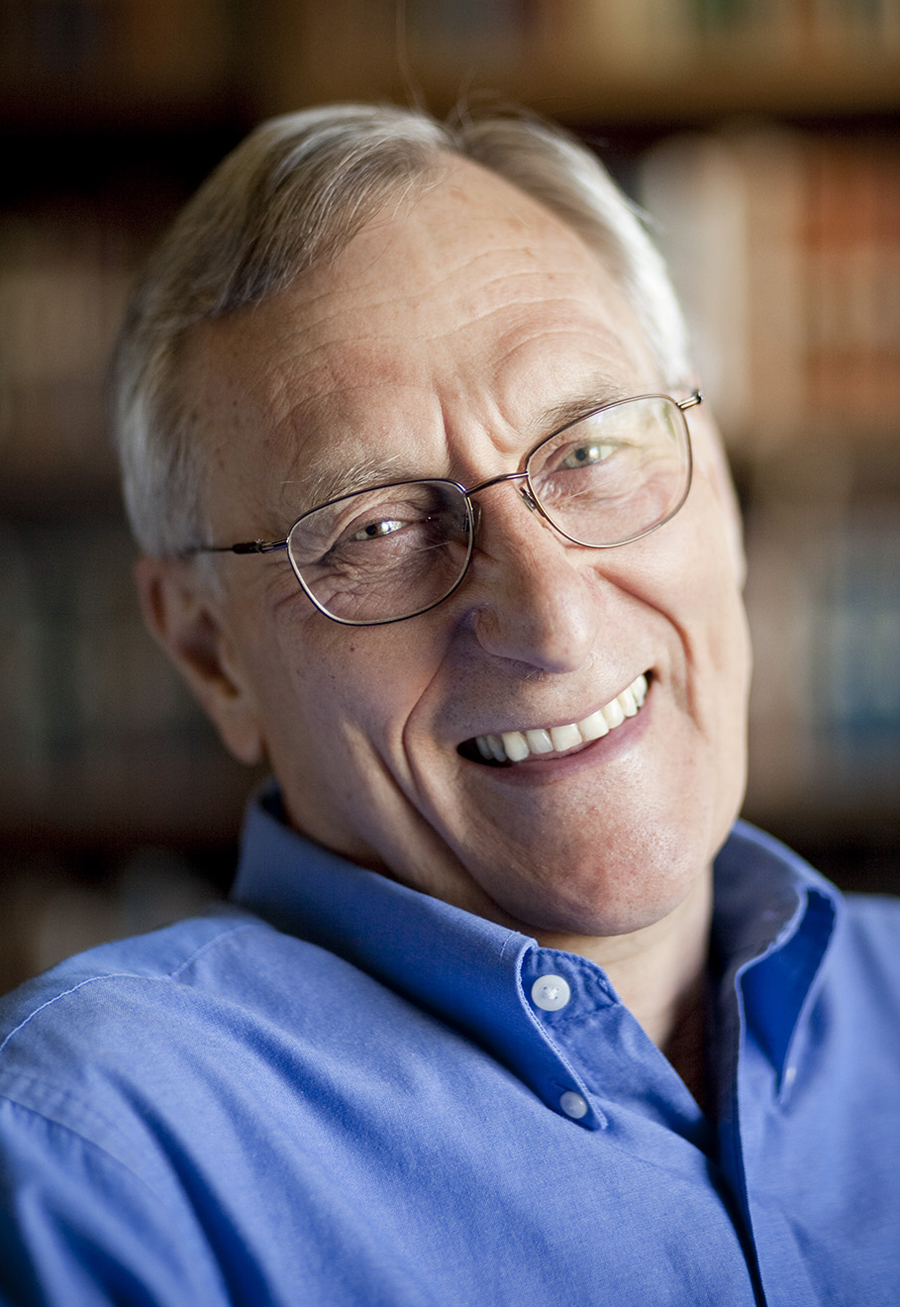
But over the next 10 years, evangelical coherence began to unravel. The number of megachurches jumped, each with its own larger-than-life leader. Televangelists such as Jim and Tammy Faye Bakker and Jimmy Swaggart rose and fell dramatically. The Moral Majority helped elect Ronald Reagan and then had to disband.
In 1990, “I got a telephone call from Mark Noll,” said Wells, then a professor at Gordon-Conwell Theological Seminary. Noll told him Pew was hinting about giving a grant to Noll (then a history and theology professor at Wheaton College), Wells, and Calvin Seminary professor Cornelius Plantinga to write about what was going on.
“I just laughed,” Wells said. Grants aren’t easy to land, and he had no idea why Pew would want him.
Wells dashed off a couple sentences. He’d never researched the topic before, or even done a lot of thinking about it. But from what he could see in his students, his ideas—that the modern church was losing the centrality of the gospel––seemed right.

Pew gave the men the grant. It was a good investment: over the next few years, Noll wrote The Scandal of the Evangelical Mind, Plantinga authored Not the Way It’s Supposed to Be: A Breviary of Sin, and Wells published No Place for Truth: Or Whatever Happened to Evangelical Theology?.
No Place sold well, and was picked up by a number of influential evangelical leaders who thought Wells was right. They responded by pulling together a conference, then the Cambridge Declaration, then the Alliance of Confessing Evangelicals to promote gospel-centered church leadership.
“In my circles, he has been very well-known and talked about,” Christ Covenant Church senior pastor Kevin DeYoung told TGC. “Whether people know it or not, Together for the Gospel and The Gospel Coalition have all been influenced by his writing. Evangelical churches, especially of a Reformed tradition, have taken his words to heart. We want to reclaim the weightiness of God.”
Formidable
Wells didn’t grow up in an evangelical community, or even an American one. He was born in Zimbabwe (then called Rhodesia).
His parents weren’t missionaries; in fact, they opposed Wells’s conversion. When he worked as a counselor at a week-long Billy Graham crusade, his mother kept locking him out of the house.

Instead, years earlier, Wells’s Scottish grandmother had divorced her husband, sailed to South Africa on her own, and came up to Rhodesia in an ox cart. “She was a truly formidable person,” Wells said. (Years later, students would describe him the same way.)
She married a Rhodesian man and gave birth to an intellectually gifted daughter, whom she banned from attending college. So Wells’s mother took a job as a secretary and somehow met Wells’s father, whose home was so remote that his roads were just dirt tracks. He was bold, too––joining the British calvary at 16 by lying about his age, fighting in the last successful sword charge of World War I, then becoming a district commissioner and judge in Rhodesia.
Wells grew up without electricity or an indoor toilet. But he had his mother’s brains, his father’s boldness, and a boarding school education. As a student at the University of Cape Town in South Africa, he flirted with radical ideas, including Marxism. “My children have never believed me when I say that, but it is absolutely true,” he said.

One day, he spotted some posters advertising a British speaker on Christianity. A couple of Christian friends invited him to go, and he did. But he didn’t stay.
“The speaker was John Stott,” Wells said. “I did walk out of his talk. It seemed to me to be a bit radical.”
But two weeks later, while painting in the mountains with other architecture students, he heard the professor talk about his Christian faith, and “it all came together in my mind,” he told Capitol Hill Baptist Church pastor Mark Dever.
Wells was more zealous for Jesus than he’d been for Marx, and immediately wanted to go into the ministry. His friends cautioned him to slow down, so he finished his degree in architecture and, knowing there were no career opportunities for him in Zimbabwe, headed to England. He arrived in 1962 with no job, no place to live, and no parental support.
“I walked around until I got to John Stott’s rectory, and I knocked on the door,” Wells said. “He showed me into his office, and we had a talk. After a little while he said, ‘Where are you staying?’ and I said, ‘Well, I don’t have anywhere to stay,’ and he said, ‘Come live with me.’”
Still Formidable
Wells stayed in Stott’s rectory and worked as an architect while figuring out how he could get into the ministry. He spent the weekdays listening to his housemates––six to eight All Souls bachelor pastors––wrestling through church issues, and the weekends hearing Stott at All Souls Church and Martyn Lloyd-Jones at Westminster Chapel.
One of Wells’s housemates alerted him to a scholarship possibility, which Wells never thought he’d get. “I was an immigrant, and hadn’t been in the country very long,” he said. “But I did apply for one, and was dumbfounded when I got an award that covered my expenses, both living and tuition.”
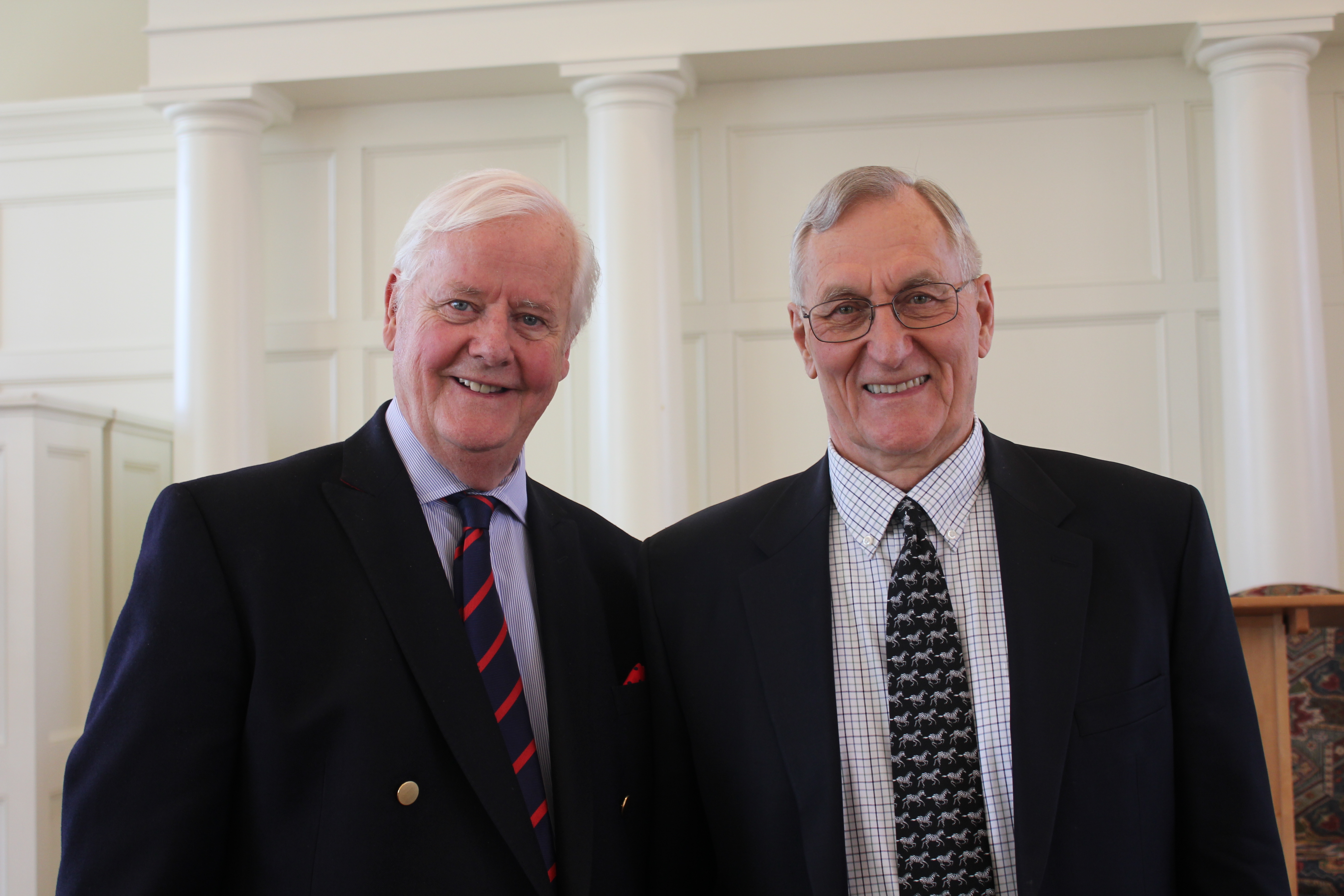
Wells began barreling his way through three degrees––a BD from the University of London, a ThM from Trinity Evangelical Divinity School (TEDS), and a PhD from Manchester University––in six years. Later he’d do some postdoctoral research at Yale University.
His romantic life was just as intense. While spending some time at L’Abri with Francis Schaeffer, he met a girl named Jane and had “a rather rapid romance”––they were engaged within 10 days. (“That was a very different time,” he explained with a chuckle. “The next week Jane was going to Greece and then coming back to the U.S. I was going back to London. We had to get some resolution to our relationship fairly quickly.”)
The whole time, he was listening to Stott and Lloyd-Jones, debating vigorously with friend and classmate Os Guinness, and watching his housemates practice theology in real life. In 1969, he and Jane moved to the United States, where he taught theology at TEDS before moving to Gordon-Conwell in 1979.
Wells was more zealous for Jesus than he’d been for Marx, and immediately wanted to go into the ministry.
Wells’s former students describe him with phrases such as “a pleasure to listen to,” “a gift to the church,” and “not the guy if you need a person to put their arm around you.”
“He had a reputation for being tough but being a good lecturer, and he was both of those things,” said DeYoung, who went to Gordon-Conwell after reading Wells in college. “I took as many classes from him as I could.”
“He was one of the best professors I’ve ever heard,” Dever said. “His lectures were superb––precise and well-delivered. He was very good at giving annotated bibliographies—to think of other people and what they were writing. I was a big fan.”
Evangelicals in Culture
By 1990, Wells was seeing changes in the evangelical community that concerned him.
“When I first came to the United States, there was an informal doctrinal consensus in the wider evangelical world,” he told TGC. “It didn’t cover every single topic, but it did cover the important ones. When I look back, it seems rather clear that this great coalition of believing began shortly after World War II with Billy Graham and Harold Ockenga and Carl Henry, and in Britain with Stott and Lloyd-Jones and, in due course, Francis Schaeffer.”
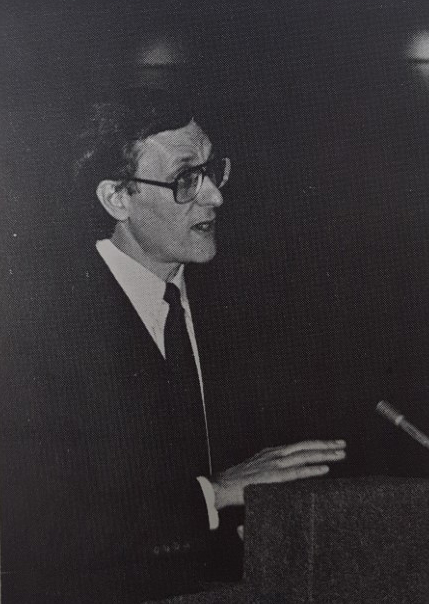
Over time, those men grew less influential. “But I don’t think the change was purely a personality matter,” he said. “What was happening is the world they represented—which was a much more doctrinally structured kind of world—was disintegrating.”
Wells could see attention spans shortening (Amusing Ourselves to Death was published in 1985), education worsening (in response, classical schools began re-sprouting in the early 1980s), and morality receding.
So when Noll asked for something he could send to Pew, Wells jotted down a few sentences about how the culture was enveloping and perverting the church, how modern society was dulling the church’s mind and its appetite for theological truth.
Six weeks later, Pew approved the grant proposal. It was generous enough to allow the three men to research and write full-time for two years.
“For about 20 minutes, I was just beaming,” Wells said. “Then I thought, Oh no, what have I done? I am not qualified to write on that. And I really wasn’t.”
No Place for Truth
Wells parked himself in a tiny, windowless study room in the Gordon College library. For a year, he read. He started with Os Guinness’s 600-page dissertation on Peter Berger, then read nearly all of Berger. He read sociologists such as Max Weber, and studies on American history and advertising. Months later, he still had no idea what to write.
“I couldn’t get enough clarity,” he said. “I’d get clarity on this or that, but I couldn’t see the whole picture.” He was trying to explain the connection between Christ and a culture that was changing as the population moved from farms to cities, as capitalism and technology sped up the rhythms of daily life, and as everyone’s different worldviews, rubbing shoulders in tight quarters, produced more relativism.
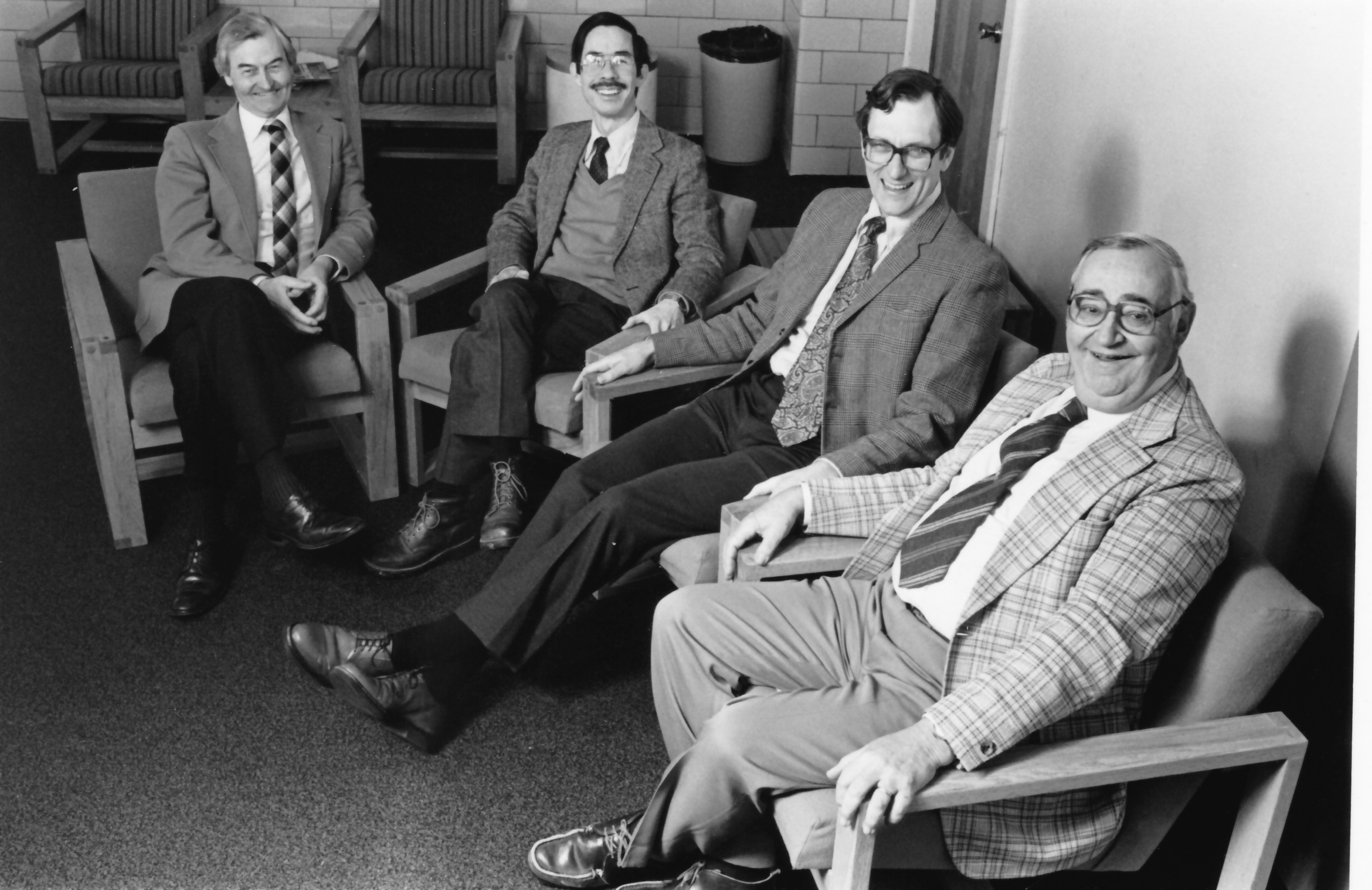
“What has produced this kind of world is modernization,” Wells said. “The public environment that results from it is modernity. But these words––modernization and modernity––are abstractions to so many people. How could I explain what has happened to my readers in a way that they could get it?”
He found the answer in a small Massachusetts town named Wenham––population 4,875 when Gordon College isn’t in session. Wells opens No Place by explaining how Wenham, settled by Puritans after a 1635 sermon, slid into modernity in stages––telegraphs gave way to radio and television and internet; farmland yielded to suburban homes; horses were replaced with trains and cars and airplanes.
At some point, Wenham crossed a divide along with everyone else, Wells wrote in No Place. “It is as if the ability to make better cars and better airplanes and better medicines and better theories imply an ability to make better selves––to transcend not only our own mortality, which would be no small feat, but also our own corruption, which would be an even larger feat.”
“So many people no longer believe in human nature––something all human being have in common,” he told TGC. Instead, “they believe in the self––the core at the center of each person that is unique to them and unlike any other self. This is really at the root of the extreme relativism of our time where people not only have their own ‘values,’ but also their own take on reality.”
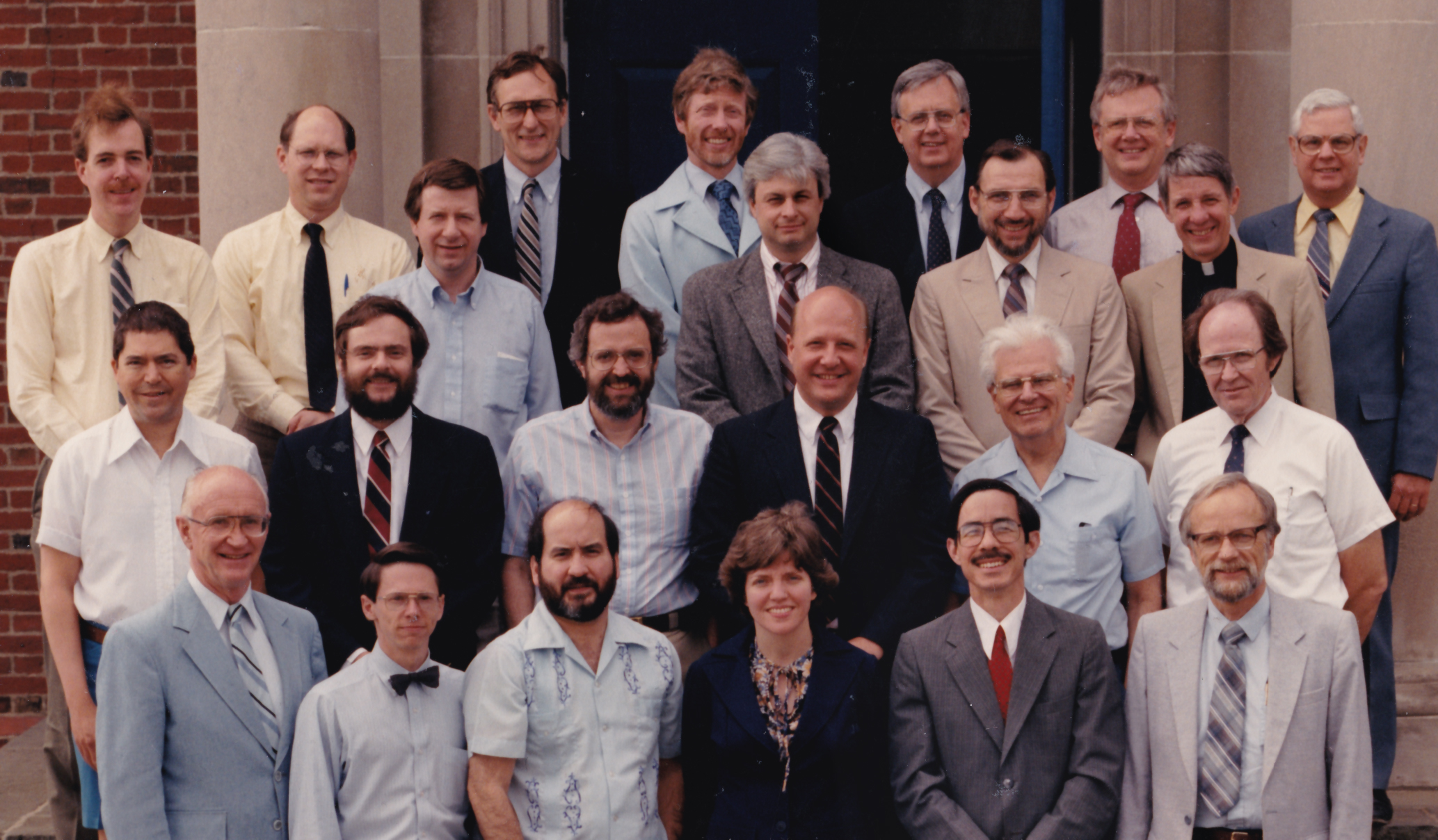
Instead of feeling culpable for sinning against a holy God (vertical relationship), people now feel shame or embarrassment about how others perceive their bad impulses or behavior (horizontal relationships).
“The result is that today people are not so much looking for forgiveness as for healing, by which I mean a better internal sense of themselves and a better experience of their self,” Wells said. “There are many wounds and many casualties.”
Americans began seeking medications and self-help books and therapists to deal with that shame. And Christians, who attended the same public schools and watched the same television programs, were not immune to this shift.
Instead of orienting life around the Bible, Christians started looking for Bible verses to orient around their emotions, their thoughts, their experiences. Pastors switched focus from studying and explaining doctrine to helping people navigate their lives. Churches abandoned harder teaching for seeker-sensitive marketing. The emergent church deconstructed worship, evangelism, and what it means to be a pastor.
Instead of orienting life around the Bible, Christians started looking for Bible verses to orient around their emotions, their thoughts, their experiences.
Increasingly, seminaries shifted classes from systematic theology or Hebrew exegesis to spiritual formation or theology and the arts. Christian bookstores, once brimming with theology books, slowly traded them for less serious books before trading even those for posters and potpourri, noted Southern Baptist Theological Seminary president Al Mohler.
“When you get into ministry, those insights of how the gospel comes to bear on community and culture are so important,” said pastor Chris Castaldo, who was a student at Moody Bible Institute soon after No Place came out, then studied under Wells at Gordon-Conwell. “Wells was one of the voices addressing that in a way that was thoughtful and clear. He wasn’t afraid to call things out and say, ‘This isn’t quite right.’”
Wells didn’t spend a lot of time on the solution in No Place, which has drawn criticism from some readers. But that was because he wasn’t done (No Place expanded into a series), and because he thought the answer was self-evident: Return to the gospel. Live a God-centered life initiated by grace and Christ’s sacrifice.
Influence
Wells estimates that No Place probably sold about 70,000 copies, including translations into Indonesian, Korean, and Chinese. It was named No. 1 in Christianity Today’s Critics Choice for Theology and Biblical Studies in 1994, and World magazine dubbed it one of the top 100 books of the millennium.
“It became very popular among conservative evangelicals,” Dever said. Presbyterian pastor James Montgomery Boice resonated with it so much he started phoning his friends.
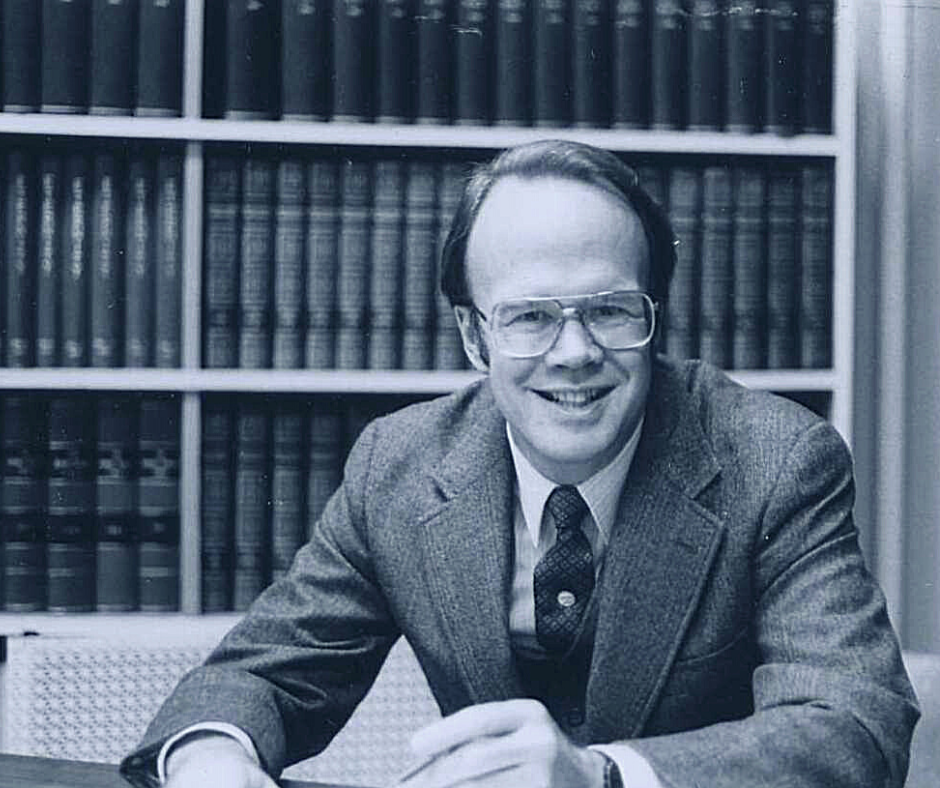
Boice “called a number of us together in Philadelphia to discuss the possibilities of forming an alliance,” Westminster Seminary California professor Michael Horton wrote in 1996. “Although many of us were already engaged in this sort of work in some fashion, [Wells’s book] had just appeared and helped to organize us around a common concern.”
Boice ended up with more than 100 ministry leaders (including Erwin Lutzer, Sinclair Ferguson, Kent Hughes, and a 24-year-old Ben Sasse) who gathered in Cambridge, Massachusetts, in 1996 to write a statement affirming the five solas of the Reformation, reaffirming the clear differences between Protestantism and Catholicism, and calling out the deficits in Pentecostal theology.
“People who have done surveys like Gallup and Barna have come back with statistics that just scare us to death,” Boice wrote shortly after the conference. “We cannot believe there is so much ignorance of basic theology out there. And as a result or consequence of that lack of a well-defined theology, we find evangelicals buying into all of the world’s way of doing things.”
As a result or consequence of that lack of a well-defined theology, we find evangelicals buying into all of the world’s way of doing things.
His group formed the Alliance of Confessing Evangelicals (ACE), which christened its blog Place for Truth. (The first executive council included Boice, Wells, J. I. Packer, Rosemary Jensen, Alistair Begg, Robert Godfrey, Michael Horton, Al Mohler, and R. C. Sproul.) ACE launched an online magazine, hosted conferences, and supported the launch of Together for the Gospel. Many of those men—and other members such as Ligon Duncan and Mark Dever—would later serve as Council members for The Gospel Coalition.
“David was a key influencer and key figure in the lives of quite a few of those YRR leaders,” Wells’s student and Oregon pastor Michael Lawrence said. Pastors in both the Presbyterian Church in America and the Southern Baptist Convention appreciated his “insistence that we have got to return to the primacy of the truth of the Word of God, and relying on the Spirit of God to build his church––not our techniques.”
‘Voice in the Wilderness’
Wells wasn’t an organizer like Boice. But he didn’t stop working, either.
“I kept going, because I was the only person besides Os [Guinness] that I knew of who was working in this area,” Wells said. (Christianity Today called him “a voice in the wilderness.”) “And it seemed to me to be so important because this wasn’t just an esoteric interest—this was the future of biblical faith in this context.”
“This context” means modernization, and not just in America. All sorts of readers in developing countries, from Korea to Africa, have told him they resonate with his warnings.
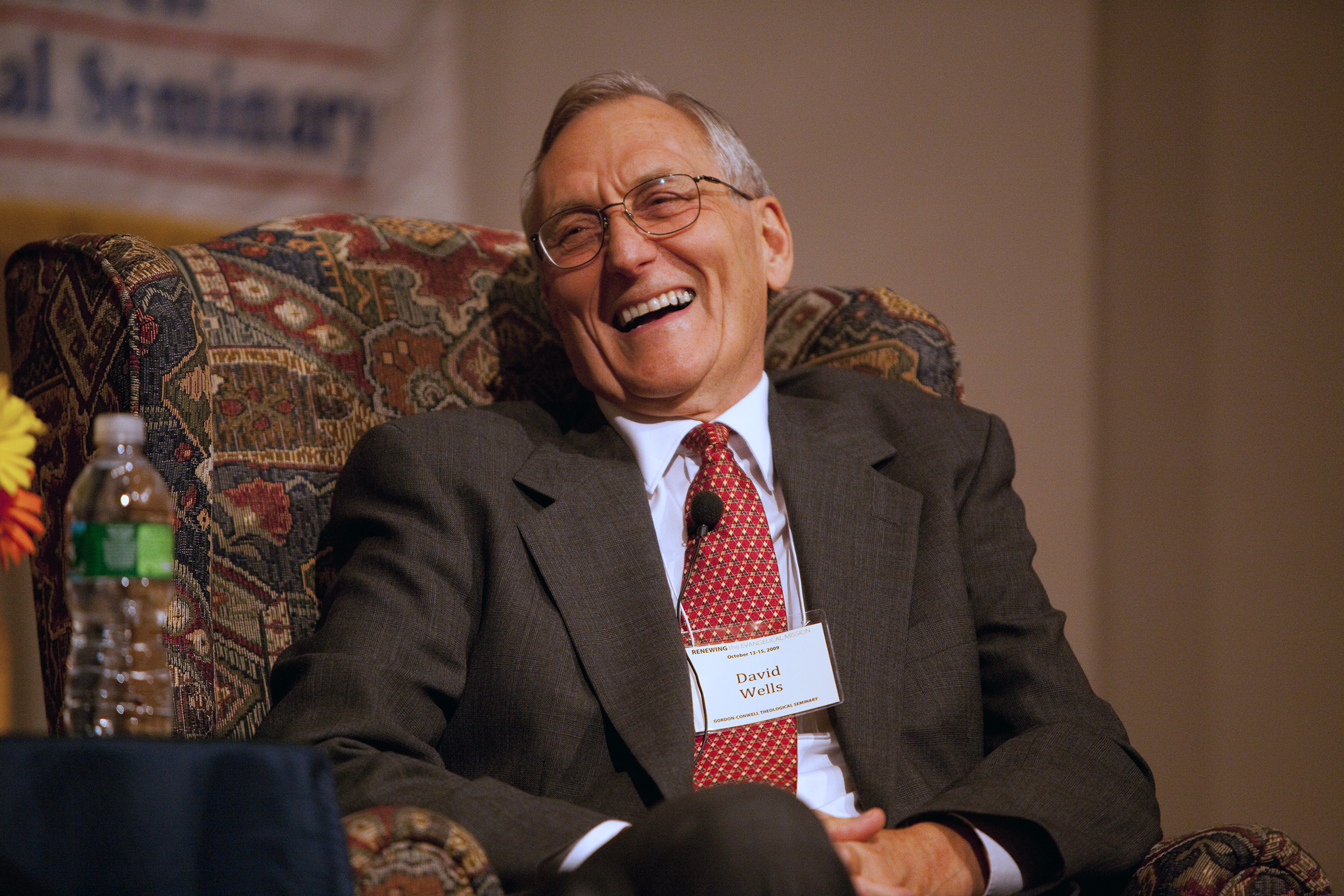
So Wells continued the series in 1994 with God in the Wasteland: Reality of Truth in a World of Fading Dreams, which explained how our experience in the modern world affects how we think about God. Answer: We lose the wonder and hope of transcendence and have a hard time imagining anything other than what we see around us.
He followed in 1998 with Losing Our Virtue: Why the Church Must Recover Its Moral Vision, which explained how diagnosing ourselves and going to therapy wasn’t going to solve our sin and depravity problems.
And then came Above All Earthly Pow’rs: Christ in a Postmodern World, which offered the person and work of Christ as the only answer to the meaninglessness and emptiness of the postmodern world. He wrote it in response to readers, who appreciated that he’d pointed out the problems in evangelicalism but wanted to know how to fix them.
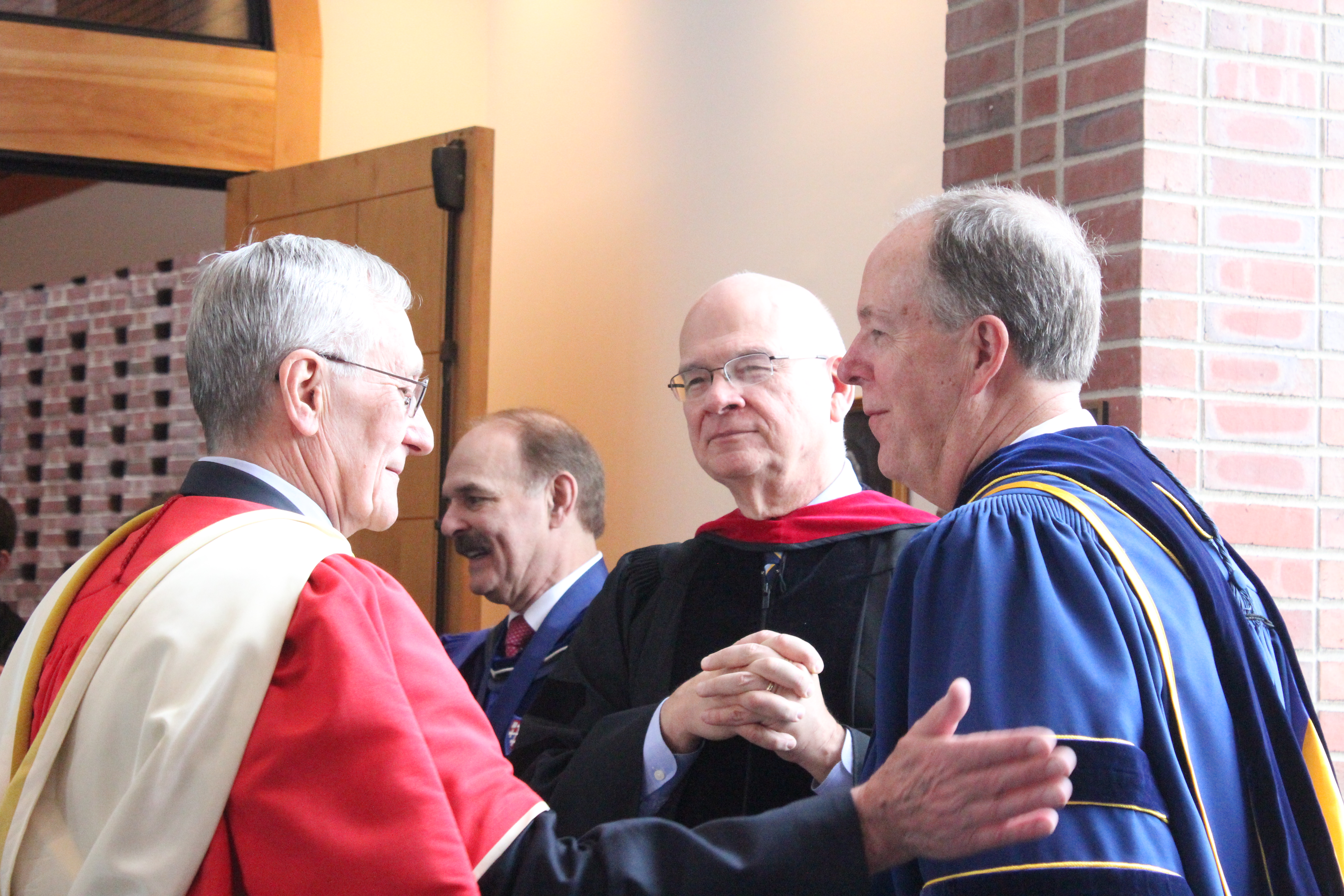
Together, they work as their own systematic theology, covering the doctrine of Scripture, of God, of man, and of Christ. Wells followed by summarizing everything up in The Courage to Be Protestant: Truth-Lovers, Marketers, and Emergents in the Post-Modern World.
“I am greatly encouraged that I am no longer a lonely voice,” Wells told then-Christianity Today editor Collin Hansen in 2008. (Hansen would release Young, Restless, Reformed that year.)
“I am finding more and more people, especially in their 20s, 30s, and 40s, who are fed up with marketed faith. . . . They want a faith that is robust, real, tough, able to withstand the challenges of a modernized culture, and one that is on the same kind of scale as the giant problems that this world raises. They are often finding it in a renewed understanding of what, in fact, is historic Christian believing of a Reformational kind.”
Timeless
Twenty-seven years after publication, it’s still too early to tell if No Place will become a classic. The culture Wells was addressing in the late ’80s and early ’90s—televangelists with heavy makeup, seeker-sensitive pastors in Hawaiian shirts, and emergent church leaders with faux hawks—have largely faded away.
“The issue with addressing the problems of the time is that the problems change, and the book can become less relevant,” Dever told TGC. But that doesn’t always happen. “Calvin addresses the problems of the time, and does so usefully and clearly. I think David does the same thing.”
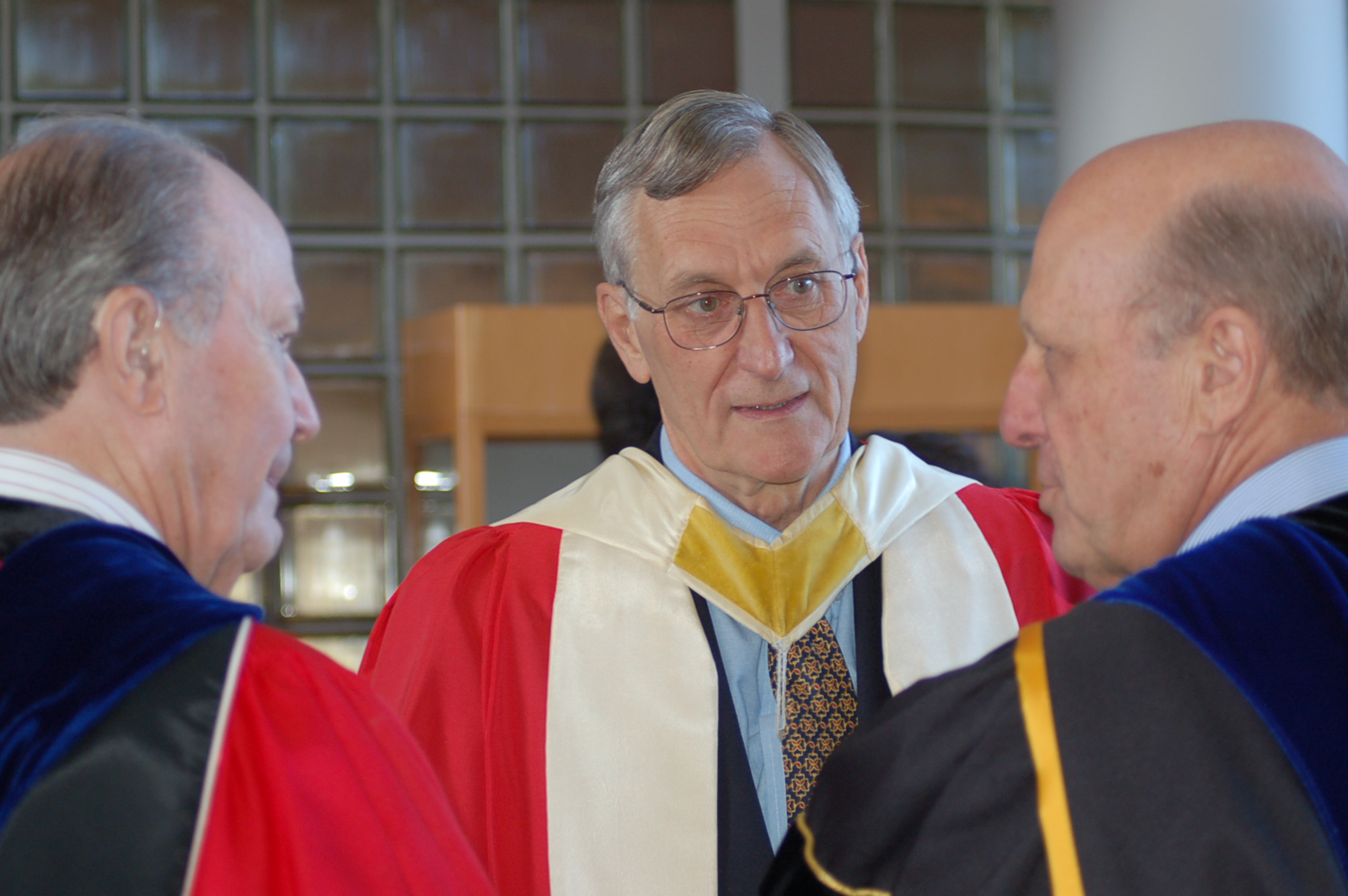
In 1993, some of Lawrence’s classmates at Gordon-Conwell thought Wells was crabby, making too much of culture they saw as benign or neutral. “But I thought, You nailed it,” Lawrence said. “Culture isn’t neutral. We can’t escape it, and we do have to think more critically about it.”
Recently, DeYoung assigned The Courage to Be Protestant to his Reformed Theological Seminary students. The reaction was much the same: “Some of the class thought, This guy doesn’t like anything, and half of the class thought, Where has this been all my life? This is really insightful. It makes complete sense,” he said.
Wells does “such a good job of helping us step out of our lives a little bit and look at it from a slightly different angle,” Lawrence said. “He helped us realize, Oh, that’s what’s going on. That’s why I feel this way. That’s why my friends are utterly unimpressed with my gospel presentations. . . . The explanatory power––it just rang true.”
Lawrence is still reading Wells. He’s working his way back through the series, and asks all of his pastoral interns to read No Place. In August, he and a group of guys in his church worked through Turning to God, which came out in 1987. Together for the Gospel gave away thousands of copies of that book in 2012, a few years after they gave out thousands of The Courage to Be Protestant.
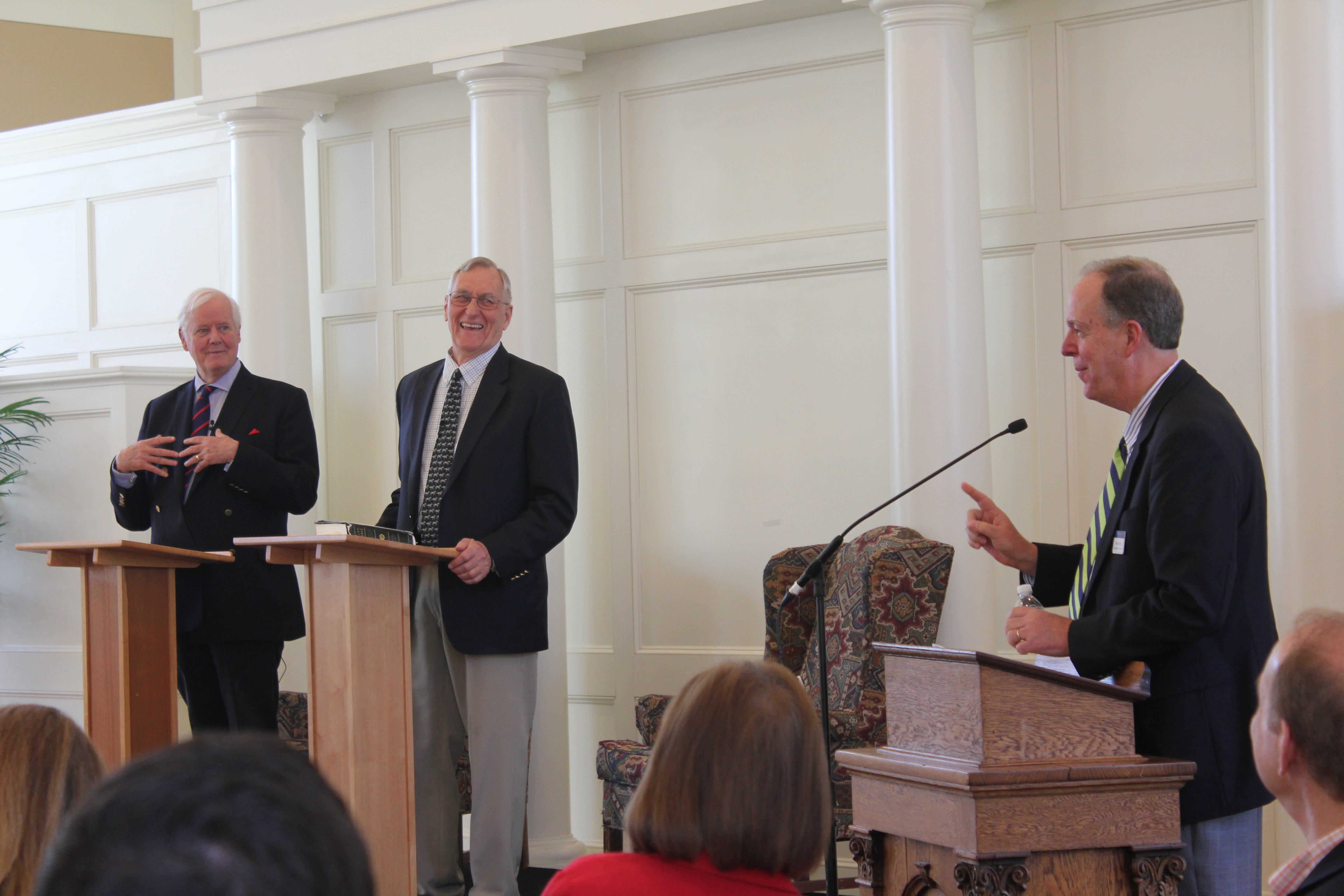
“We need the message that the fundamental realities of our world and of our ministries have not changed,” DeYoung told TGC. “It’s easy to think everything has changed. And if everything has changed, then everything we need to do must change.”
Wells gives us the antidote, he said. “God is still the same. His Word is still the same. There is wisdom to be gained from the ages that have gone before—not to repristinate some other decade or century, but to realize human nature, the problem with sin, the solution, are all the same. If we try to take short cuts, to do ministry and to provide seeming relevance to our culture, we’re not doing them or us any favors, because what we need is a bigger vision of God and his holiness and his Word.”
He remembers a fellow student asking Wells, “What are the steps we need to take to make this right?”
“He said, in his British, intimidating sort of way, that that very question was part of the problem,” DeYoung recalls. “We want an answer that provides us with 12 easy steps to fix the problem. There isn’t an answer like that. The answer is to preach Christ, to nurture churches that look like churches, and to know God as God.”
Read More
The Gospel Coalition
